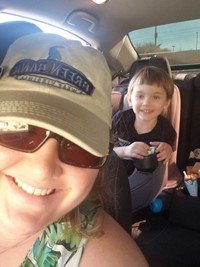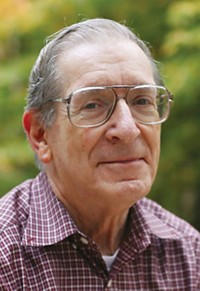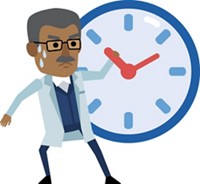Advertisement
Grab your lab coat. Let's get started
Welcome!
Welcome!
Create an account below to get 6 C&EN articles per month, receive newsletters and more - all free.
It seems this is your first time logging in online. Please enter the following information to continue.
As an ACS member you automatically get access to this site. All we need is few more details to create your reading experience.
Not you? Sign in with a different account.
Not you? Sign in with a different account.
ERROR 1
ERROR 1
ERROR 2
ERROR 2
ERROR 2
ERROR 2
ERROR 2
Password and Confirm password must match.
If you have an ACS member number, please enter it here so we can link this account to your membership. (optional)
ERROR 2
ACS values your privacy. By submitting your information, you are gaining access to C&EN and subscribing to our weekly newsletter. We use the information you provide to make your reading experience better, and we will never sell your data to third party members.
Careers
Retiring From Academia
For emeritus professors, shutting down their research labs can be both challenging and deeply emotional
by Linda Wang
September 8, 2014
| A version of this story appeared in
Volume 92, Issue 36
For Albert Padwa, it seems like only yesterday that he was a brand-new assistant professor of chemistry at Ohio State University. The year was 1963. Full of excitement and anticipation, Padwa couldn’t wait to start climbing the academic ladder.
Today, as the emeritus professor of chemistry at Emory University reflects on his 50-year career in academia, he is facing a different kind of challenge as he begins to navigate the realities of retirement.
“When you first start off in your career, the slope is straight up. It’s like climbing a mountain, and it’s really a lot of fun,” Padwa says. “But when you’re at the top, you’ve got to come down, and you realize it’s not as joyous as it is going up.”
Difficult as it might be for newly minted professors to set up their research groups, it’s just as challenging for faculty at the other end of a career to wind down their labs. Not only are there many practical considerations, from cleaning out one’s office to mentoring the last graduate student, but it can also be a deeply emotional experience.
“It’s a difficult process, and it’s difficult for reasons that I think are different for each individual,” Edwin Vedejs, emeritus professor of chemistry at the University of Michigan, Ann Arbor, says of retiring. “There are things that one has to do that frankly shake you to the core.”

Vedejs gained emeritus status in 2011, and while cleaning out his office, he had to purge vast records of his research career. “We used to take notes on what we read, and I took my notes for every publication on a four-by-six index card,” he says. “I had to dispose of a card file that contained more than 20,000 index cards and that weighed hundreds of pounds. Just the thought of how much passion and effort had gone into accumulating that information … that was a profoundly deep experience.”
Yet Vedejs accepts this transition as a part of life. “There’s no research group without the day when it has to end,” he says. “You just have to tough it out.”
Padwa has endured his own share of purging old materials, and he says there are some things he just can’t bring himself to throw away yet, including roughly 150 bound theses of his former graduate students. He’s also reluctant to part with old photos and correspondence that date back many decades. When cleaning out an office, “there’s a lot of nostalgia, and you relive things that you hadn’t thought about for 40 to 50 years,” he says. “There’s a richness that comes along with that experience.”

Some things do have to go, however. “I had something like 50 years of printed journals,” Padwa says. “I thought that surely somebody would want them. Well, it turns out that very few people or even libraries want them.”
Eventually, he did find a taker, however. “I found a small school in South Carolina. I packed up the journals, rented a U-Haul, drove to the school, and gave the entire collection to them for free.”
Padwa also had to dispose of chemicals he’d accumulated over the years. “Some of them, especially the transition-metal ones, used to sell for $1,000 a gram. The question is, What do you do with the whole collection? It becomes a storage issue for your colleagues.”
Padwa had to pay thousands of dollars to dispose of the chemicals, and he donated his glassware and equipment to junior faculty members. His lab space was assigned to a new assistant professor who started this fall.
“The process of shutting down a research group has to be planned well in advance because graduate students have a roughly five-year time span in a given research group, and you have to be thinking ahead roughly by that number of years,” Vedejs says.
Before Vedejs retired, he made arrangements to continue overseeing the work of several graduate students and postdocs in his lab. “Until a year ago, we had four or five individuals, and as recently as three months ago, we still had two individuals,” he says. Vedejs hired visiting graduate students for six-month appointments, partly for educational reasons and partly to interact with the last postdoc and ensure his safety from potential accidents until he finished his research. “I did everything I knew how to do to at least continue some critical mass so that people would not be left alone to turn the lights off,” he says.
Nancy S. Mills, who will retire next year from Trinity University, a predominantly undergraduate institution in San Antonio, says she’s so busy finishing up her research projects that she hasn’t had time to think about shutting down her lab. “In terms of any preparation for moving, I have done absolutely nothing because I’m too busy living in the present to start worrying about the future,” she says. In fact, she’s expanded her research group to two postdocs and 15 undergrads, the largest it has ever been, to wrap up her research by next summer.

Mills made a promise to her husband years ago that she would retire at age 65 so that they could spend more time traveling and hiking together. They plan to move to Oregon after the current school year. “I’m grateful to my husband for forcing us into this idea because the one thing I want to do is leave before the department wants me to leave,” she says.
Being retired doesn’t mean disengaging from chemistry, however. In fact, in her emeritus status, Mills will be joining a research group at the University of Oregon that is doing computational chemistry in an area related to her current research. But she will be doing research at her own pace, and she will have the freedom to take extended trips with her husband.
Padwa says it’s important for retired faculty to fill their lives with meaningful activities. “The fun part of a career is the excitement that comes along with the innovation, with the exploration, with the sense of adventure,” he says. “When all of a sudden you have to give that up, if you’re going to stay a happy person, you better find some other alternatives in life that provide you that same joy of adventure, exploration, and discovery.”
Mentoring students has meant a lot to Padwa, and he has found other ways to continue his involvement in the lives of younger chemists. For example, he has bestowed gifts on Emory University as well as his alma mater, Columbia University, to create lecture series highlighting the work of early-career faculty. “There are ways in which those of us who are retiring can reach out to our young colleagues and still be influential in terms of driving some of the machinery of the future,” he says.
In addition, Padwa continues to travel, climb mountains, build mobiles—and he’s dating again. After he retired, he and his wife realized that they had grown apart, and so they divorced. “What happens is that sometimes you go through a long period of time with someone you’re married to but you’re never really connected because you’re involved in your science,” he says. “This is what happens, I think, with very dedicated professionals.”
However one chooses to spend the emeritus years, the experience can be just as fulfilling as one’s research career. Vedejs says that just because he has retired from his faculty position doesn’t mean he’s retired from doing the science he loves. “You have to think about how to continue your science,” he says. “Fortunately, that has become much easier to do in the electronic age.”
And often, change can bring new opportunities. “I’ve turned off the lights in my lab, but I’m hoping to visit other labs,” Vedejs says. “I’ve got a few collaborations in place, along with a major editorial project to work on, and I think that will be more than enough to keep the chemistry experience alive.”






Join the conversation
Contact the reporter
Submit a Letter to the Editor for publication
Engage with us on Twitter